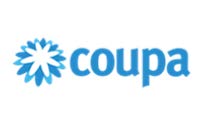Research Note: Evolve’s Insights from ITC 2023: Operational Efficiency Reigns; ‘Napkin Companies’ Fall Out
Published November 2023
Evolve’s Insights from ITC 2023: Operational Efficiency Reigns; ‘Napkin Companies’ Fall Out
Executive Summary
At the end of last month, the Evolve team attended the 2023 Insurtech Conference (ITC) in Las Vegas at the end of October 2023. As a firm specializing in M&A advisory for tech-enabled Insurance and Capital Markets firms, our focus is predominantly on established service and software entities within the Insurance vertical.
In two days, we engaged in nearly a hundred discussions with founders, operators, and investors. Key takeaways include the following:
- Tangible shift towards pragmatic AI adoption, particularly among service companies
- Notable pivot from customer experience (CX) to cost management to preserve margins
- Reduction in companies that are still at the “idea on a napkin” stage, reflecting tighter funding landscapes
- Increase in traditional service firms’ attendance, particularly in P&C claims, a space where Evolve has significant transaction involvement.
This executive research blog aims to provide valuable insights for owners, operators, and executives, particularly those who have not heavily relied on external capital. In today’s market, getting entangled with costly and unproven tech solutions can be detrimental, especially when considering a future M&A or equity transactions.
AI is Actually Being Implemented to Improve Margins & Drive Efficiency
Our client and relationship base, traditionally part of the more conservative insurance sector, has shown increasing interest in ITC since 2017. In the last 18 months, many have actively implemented AI-driven projects, driven by the need to counter rising wages and inflation. The past ITCs were more about exploration; this year, the discussions were decisively about serious tech adoption, discerning the real value-providers from the fluff-filled vaporware vendors.
Cost Management Now Trumps the Customer Experience in Discussions
The dialogue at ITC has shifted significantly. Previously, the emphasis was on leveraging technology to enhance customer experience. Now, the focus has pivoted towards using technology to revamp backend processes, reflecting a pragmatic approach to operational challenges, including managing legacy systems and strategizing business models. The industry seems to agree: technology is to augment, not replace, human elements in service and distribution.
Decline of the “Napkin Concept” Companies
There was a noticeable shift in the entrepreneurial mindset at the conference. The focus has moved from hyper-growth to sustainability, with a path to profitability backed by data, not just ideas. This change is perhaps a nod to a more challenging funding climate, steering startups towards more economically sound models. And, humorously, the once omnipresent references to firms like Lemonade and Hippo have dwindled, marking an end to their era of buzz.
Increased Participation from Traditional Service Firms
The increase in attendance by traditional P&C claims service providers, such as TPAs, Independent Adjusting Firms, and Forensic Engineers, is significant. These firms, faced with compressing margins, are now actively seeking tech solutions to enhance their processes and operational efficiency. This year, not only top executives but also departmental heads and functional leaders were present, indicating a comprehensive, strategic approach towards technology adoption.
Conclusions
The ITC 2023 was a telling reflection of the current state of the insurtech sector. The focus is now squarely on practical, effective technology integration that complements human expertise rather than replacing it. For the insurtechs still peddling unproven concepts or vaporware, the message is clear: adapt to the changing landscape or risk obsolescence.
Established firms are advised to approach technology as a strategic asset — an aid to human expertise, not a replacement. The future lies in creating solutions that are not only technologically advanced but also grounded in the realities of the insurance industry.




